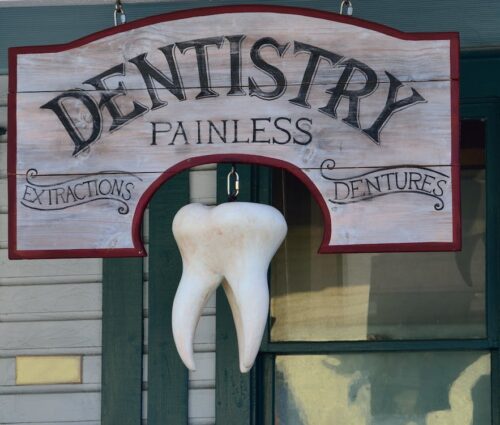
Beware of ‘Silver’ Amalgam Fillings in Teeth
Written by Robert Connolly
Mercury is a heavy metal known to be toxic to the human body and detrimental to the nervous system. While it is recognized to be harmful to our health, the American Dental Association (ADA) still approves the use of mercury in amalgam teeth fillings. According to fda.gov, “Dental amalgam is a mixture of metals, consisting of liquid (elemental) mercury and a powdered alloy composed of silver, tin, and copper. Approximately half (50%) of dental amalgam is elemental mercury by weight. The chemical properties of elemental mercury allow it to react with and bind together the silver/copper/tin alloy particles to form an amalgam.” The FDA goes on to state the potential risks of using dental amalgams:
- Contains elemental mercury.
- Releases low levels of mercury in the form of a vapor that can be inhaled and absorbed by the lungs. Exposure to high levels of mercury vapor, which may occur in some occupational settings, has been associated with adverse effects in the brain and the kidney.
- Developing neurological systems in fetuses and young children may be more sensitive to the neurotoxic effects of mercury vapor.
- Very limited to no clinical data is available regarding long-term health outcomes in pregnant women and their developing fetuses, and children under the age of six, including infants who are breastfed. Pregnant women and parents with children under six who are concerned about the absence of clinical data as to long-term health outcomes should talk to their dentist.
- Although the available evidence does not show that exposure to mercury from dental amalgam will lead to adverse health effects in the general population, exposure to mercury may pose a greater health risk in the groups of people listed below, who may be more susceptible to potential adverse effects generally associated with mercury.
- Pregnant women and their developing fetuses;
- Women who are planning to become pregnant;
- Nursing women and their newborns and infants;
- Children, especially those younger than six years of age;
- People with pre-existing neurological disease;
- People with impaired kidney function;
- People with known heightened sensitivity (allergy) to mercury or other components (silver, copper, tin) of dental amalgam.
- Some individuals have an allergy or other sensitivity to mercury or the other components of dental amalgam (such as silver, copper, or tin). Dental amalgam might cause these individuals to develop oral lesions or other sensitivity reactions.
- If you are allergic or otherwise sensitive to any of the metals in dental amalgam, you should not get amalgam fillings. You can discuss other treatment options with your dentist.
Only recently has the ADA begun to retreat from promoting the use of mercury in dental practices to align with the Minamata Convention on Mercury, a global treaty to protect humans and the environment from the adverse effects of mercury. However, the ADA has yet to take the necessary step to stop using mercury in dental practices altogether. Safer alternatives to amalgam fillings have been available for years such as composite resins and glass ionomer cements non-amalgam restorations (fillings).
“In the past, the ADA has steadfastly refused to align with this goal of the global treaty, but the recent rewording of its policy shows that the ADA is now taking the convention seriously. While they still haven’t outright conceded that amalgam is unsafe, the policy revision is stunning and encouraging,” said Charlie Brown, national counsel for Consumers for Dental Choice. “With your support, we can keep pushing out amalgam use entirely — for everyone.”

Setting Healthy Goals While Grieving

Lighten the Mood
You May Also Like

6 Foods Dietitians Refuse to Keep in Their Homes—and 3 of Their Unexpected Favorites | Runner’s World
October 13, 2017
5 (more) Healthy Infographics
September 27, 2020